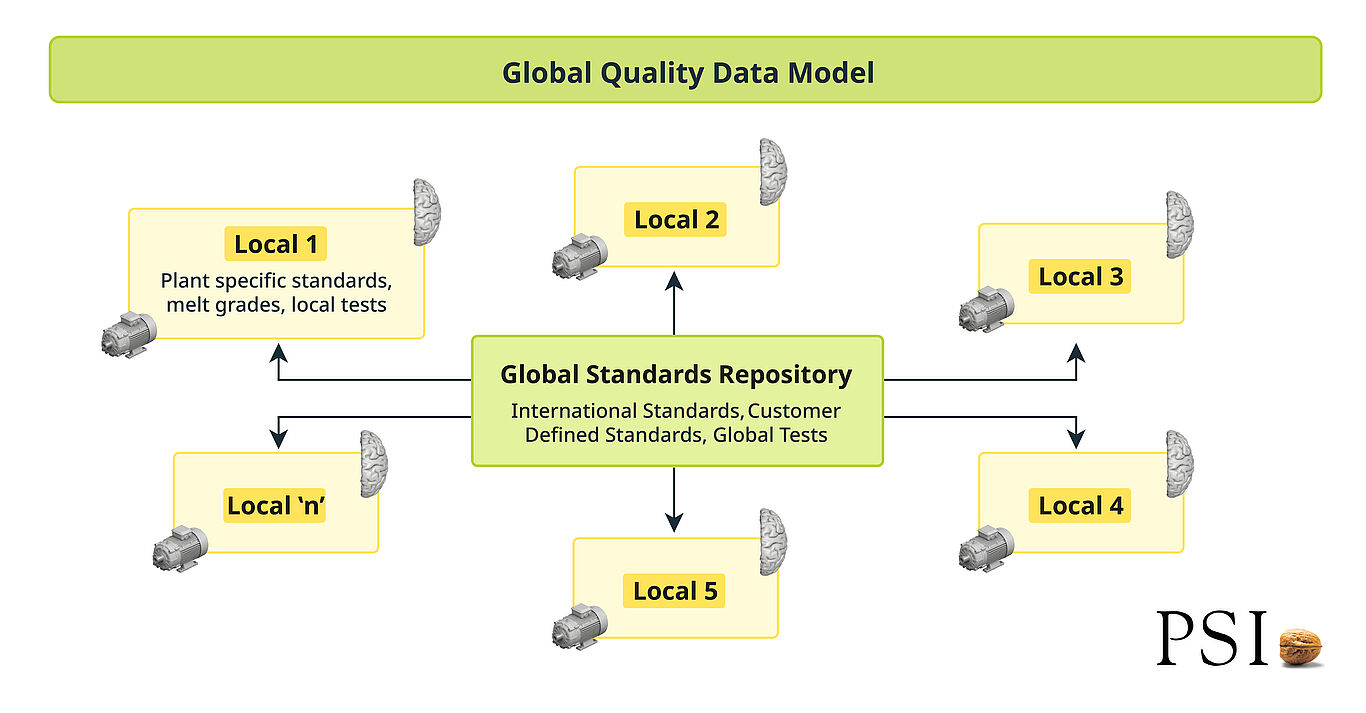
Quality specifications are crucial for the metals industry to ensure consistent quality and safety. Integrating these specifications into the manufacturing execution system (MES) is essential for maintaining expected quality levels, minimizing errors, and enhancing efficiency, thereby meeting regulatory requirements and customer expectations.
Challenge
To meet customer needs and maintain compliance standards, metals producers with multiple geographically distributed sites often face:
- Inconsistent quality data representation across local systems
- Variable completeness and interpretation of standards (EN 10216-5, ASTM A312, ISO, API)
- Manual, error-prone processes that rely on spreadsheets and local expertise
- Duplicate representations of the same information
This fragmentation leads to operational inefficiencies, compliance risks, and higher costs due to rework, delays, and audit challenges.
To remain competitive, metals producers need a centralized yet flexible solution that ensures global quality consistency while allowing local adaptability.
Solution
The PSImetals Global-Local Order Dressing platform provides a unified knowledge base for the steel, and aluminum industries. It transforms commercial sales orders into detailed, executable production instructions by integrating quality specifications, manufacturing rules, and governance models directly into the MES.

Key features:
- Central repository for standards: Global repository stores international and corporate quality rules.
- Local repositories allow site-specific extensions.
- Knowledge-based architecture: Encodes quality models, manufacturing processes, and governance roles.
- Automated technical elaboration: Generates production orders with test protocols, routing, setup parameters, and compliance documentation.
- Governance model: Corporate teams manage global rules; plant engineers adapt them locally within controlled boundaries.
- Conflict mitigation: Synchronization engine prevents outdated rule usage, flags inconsistencies, and ensures audit-ready traceability.
- One single source of truth.
Benefits
- Time to create new or revised quality specifications reduced from 2 weeks to 2h.
- 60–80% fewer data entry errors with automatic validation of completeness and feasibility.
- Engineers focus on innovation and collaboration instead of repetitive manual tasks.
- Consistent interpretation of EN, ASTM, ISO, and customer-specific standards across all sites.
- Automated compliance verification and full traceability for audit inspections.
- Prevention of outdated or conflicting rules; real-time validation of production parameters which significantly reduces scrap and rework.
- Faster rollout of new product specifications to the market across global sites.
- New plants onboarded in months instead of years, with standardized processes enabling knowledge transfer.
Implementation
The deployment of PSImetals Global-local Order Dressing follows a structured four-phase approach:
- Data consolidation – Migration of core standards and rules into the global repository.
- Knowledge Base Configuration.
- Pilot implementation – Validation in one or two plants.
- Multi-site rollout – Controlled synchronization of rules across all locations.
- Continuous improvement – Regular global releases, audits, and optimization loops.
Change management is a critical success factor: securing leadership commitment, involving subject matter experts, and training local engineering and quality teams ensures smooth adoption.
Conclusion
The PSImetals Global-Local Order Dressing platform enables metals producers to harmonize quality and manufacturing processes across global operations while preserving local flexibility. By combining centralized governance with site-specific adaptability, the solution ensures consistent quality outputs, faster order processing, reduced risk, and sustainable cost savings.
This digital transformation step not only addresses today’s compliance and efficiency challenges but also builds the foundation for future digital twin and industrial AI applications in metals production.
